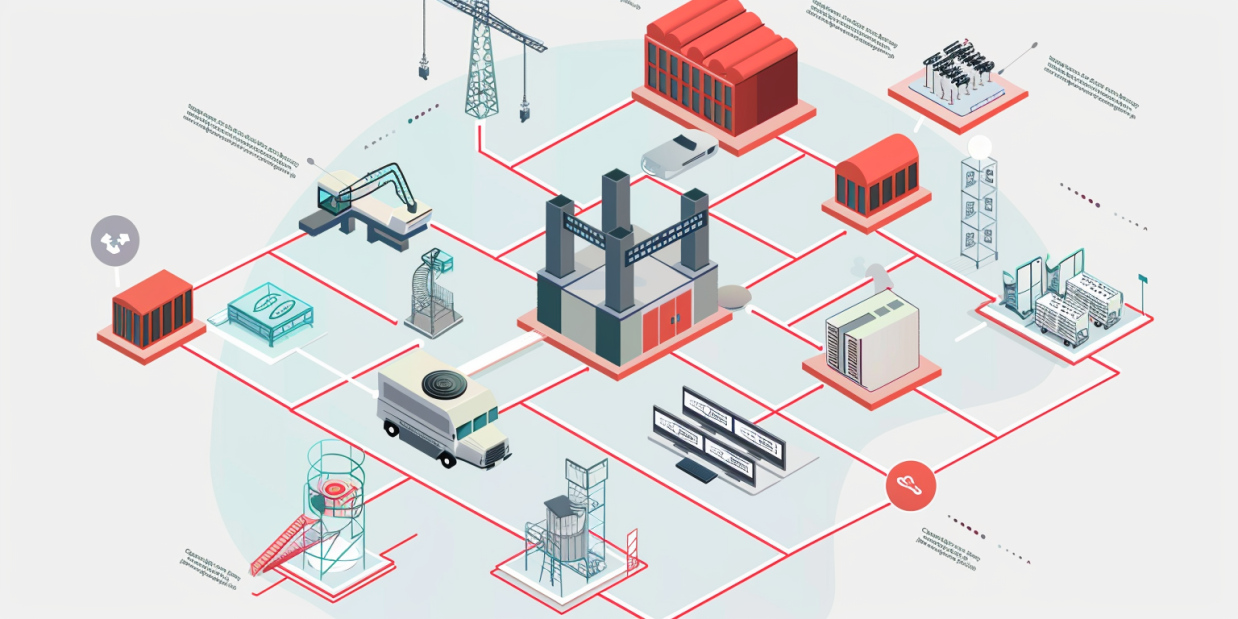As a prospective Systems Engineer, it’s imperative to inquire about core aspects of your role during an interview. Consider asking about the types of systems you’ll be working with, as well as specific technical challenges you may encounter. It’s constructive to learn about how system engineering fits into the broader organisational structure and whether you’ll have the opportunity to offer innovative solutions. Additionally, you might question potential professional growth paths and capacity for future skills advancement within the company.
Table of Contents
- Understanding the Role: What Systems Will I Be Working With?
- Grasping the Challenges: What Technical Complications Could Arise in My Role as a Systems Engineer?
- Evaluating Organisational Structure: Where Does System Engineering Sit within the Company?
- What Pathways for Skills Enhancement and Career Advancement Are Available?
- Questions to Ask your Interviewer
- 1. What specific systems will I be working with in this role?
- 2. Can you share some of the technical challenges I might encounter in this position?
- 3. How does Systems Engineering fit into the broader organisational structure here?
- 4. Do you offer any professional development opportunities or pathways for career advancement in Systems Engineering?
- 5. What type of cross-functional collaboration can I expect in this role?
- 6. What are some past projects that the Systems Engineering team has worked on?
- 7. What tools and technologies does the company commonly use in handling system engineering tasks?
- 8. How does the company handle emerging trends and innovations in Systems Engineering?
- 9. Can you describe the work-life balance for Systems Engineers in this company?
- Wrapping Up
Understanding the Role: What Systems Will I Be Working With?
Every aspiring Systems Engineer should probe about a central aspect of their potential function during an interview: the systems they’ll be assigned to manage. The domain of systems engineering is comprehensive, encapsulating diverse systems from IT, manufacturing, telecommunications, to mechanical realms. This broad spectrum fosters development of specific skills within different subsets. Consequently, grasping the types of systems you’ll handle is essential to fathom your role’s specifics and verify alignment with your proficiency and career goals.
For instance, if your role as a Systems Engineer involves managing databases in a SaaS-based company, you’ll be extensively interfacing with systems like SQL databases, cloud platforms such as AWS or Azure, and potentially using Big Data solutions. Conversely, in a Mechanical Systems Engineering role, you’d be engaging with varied mechanical systems, like HVAC or industrial automation systems. Understanding this nuances your skill set preparation for forthcoming technical challenges. An exploration of systems engineering reveals the field’s nature, breadth, and diverse roles within. You can explore more about systems engineering by visiting this link.
Grasping the Challenges: What Technical Complications Could Arise in My Role as a Systems Engineer?
In any profession, including Systems Engineering, unique challenges abound. Discussing these technical dilemmas with your interviewers grants deeper understanding and measures your aptitude. Individual systems present varied obstacles. IT systems, for instance, may encounter operational, maintenance, or security issues, while mechanical systems could face reliability, safety, or efficiency difficulties. Conceptualising these problems enhances your readiness and conveys a proactive, problem-solving mindset to potential employers.
Navigating IT Systems Engineering demands understanding both operational and strategic challenges. Operationally, you might grapple with hardware faults, software glitches, or cybersecurity threats that impact daily business operations. Grasping strategic challenges, such as aligning IT systems with evolving business goals, maintaining flexibility for growth, or addressing scalability issues, is equally important. Recognise the pivotal role of system engineers, who ensure seamless system operation, thus facilitating optimal service or product delivery.
Mechanical Systems Engineering introduces hurdles from managing efficiency and reliability to adhering to safety regulations. Duties may encompass maintenance planning, rectifying equipment malfunction, or optimising resource usage. Understanding these challenges exhibits thoroughness and foresight, aligning your abilities with role necessities.
A key aspect of understanding these challenges also involves acknowledging the multitude of roles within the sphere of system engineering. These roles are often interlinked and involve handling entirely distinct challenges. To grasp the extensive panoply of roles in systems engineering, you might find it useful to refer to this source. Knowledge of these roles and associated challenges will undoubtedly give you a greater breadth of understanding of what to expect and how to prepare for your role as a Systems Engineer.

Evaluating Organisational Structure: Where Does System Engineering Sit within the Company?
Determining the position of systems engineering within the wider organisational framework can deliver critical insights. The emphasis on systems engineering departments varies across organisations. Some companies view this role as a significant pillar of their operations, interacting with various departments. Others may see it as a subordinate participant, optimising operational workflows. Establishing your place within the larger organisation is crucial for job expectation alignment.
Additionally, this familiarisation can inform you about potential interfaces within your Systems Engineer role. In an IT scenario, you might engage with software developers, business analysts, and cybersecurity teams, nurturing a comprehensive business view. In manufacturing, interactions could extend to quality assurance and maintenance teams, boosting your business understanding.
What Pathways for Skills Enhancement and Career Advancement Are Available?
Progression and upskilling are crucial to any career, especially in Systems Engineering. By asking about the avenues for skills enhancement, you highlight your commitment to learning and evolution. Such traits are highly desired by employers.
There are two primary growth opportunities to consider. Vertical growth refers to broader responsibilities or specialising within the systems engineering domain. In contrast, horizontal growth might encompass related sub-fields like project management or business analysis.
Mastering an array of systems engineering-specific tools, methodologies, and frameworks is key to skills enhancement. Many firms host various training and development programs. Some even sponsor specific certifications to encourage professional development.
Asking about these opportunities can offer your interviewer a glimpse of your ambition, thirst for knowledge and desire to improve. These traits are key to standing out in the competitive field of systems engineering.
Success in Systems Engineer interviews hinges greatly on preparedness. Practice responses to likely interview questions, considering various scenarios and challenges. Dress professionally to show respect for the process, and always be punctual. Maintain professional etiquette throughout, demonstrating active listening, providing clear responses, and asking insightful questions. Remember, your confidence and keenness for the role should shine through your attitude and responses.
Questions to Ask your Interviewer
1. What specific systems will I be working with in this role?
This question is crucial to understand the nature of your work and evaluate if this falls within your expertise. It enables you to elucidate the kind of technology or equipment you’ll utilise daily, thus providing practical insights into your role as a Systems Engineer.
By asking this question, you demonstrate a proactive approach and preparation to come up with solutions. It also provides you with an opportunity to showcase how your skills and experience can be employed to overcome such challenges.
3. How does Systems Engineering fit into the broader organisational structure here?
Understanding where you fit into the bigger picture provides you with a clearer idea of your responsibilities. It also hints at your eagerness to work cohesively within the organisation, leading to mutual growth and advancement.
4. Do you offer any professional development opportunities or pathways for career advancement in Systems Engineering?
This question demonstrates your ambition and long-term commitment towards the profession. The interviewer’s response would shed light on how the company prioritises growth and development, making this a crucial query for both parties involved.
5. What type of cross-functional collaboration can I expect in this role?
Asking this question displays your readiness to engage in team collaboration and your understanding of the interconnected nature of systems engineering. The answer may indicate potential team interactions and the broadness of cross-departmental understanding that you may be expected to possess.
6. What are some past projects that the Systems Engineering team has worked on?
This question signals your keen interest in the practical applications of your work and the potential impact you could make. The answer can provide a glimpse into the scale, range, and complexity of the projects that the company takes on.
7. What tools and technologies does the company commonly use in handling system engineering tasks?
Asking this question confirms your readiness to utilise different tools effectively and the willingness to adapt to the company’s preferred technologies. The response will signify the technical abilities you are expected to exhibit or acquire.
8. How does the company handle emerging trends and innovations in Systems Engineering?
Posing this question suggests your desire to work at the cutting edge and showcases an understanding of the accelerating pace of innovation in systems engineering. The response may indicate how forward-thinking and open to novelty the company is.
9. Can you describe the work-life balance for Systems Engineers in this company?
Landing on this question shows that you are thoughtful about maintaining your wellbeing and productivity. The answer would deliver insights into the company’s culture and employee care policies.
Wrapping Up
Becoming a Systems Engineer paves the way for an enriching career, loaded with constant learning, problem-solving, and playing a critical role in organisational success. The questions you ask in your interview not only provide clarity about your prospective role but also display your enthusiasm, preparation, and commitment to the profession.
Following up post-interview solidifies your interest in the position. Consider sending a personalised thank-you email within 24 hours of your interview, expressing your gratitude, restating your enthusiasm, and subtly emphasising how your skills fit the role. Moreover, stay patient and professionally persistent while waiting for a response.
Remember, every question is an opportunity to underline your suitability for the role and your willingness to contribute valuably to the organisation. The journey to becoming a successful Systems Engineer begins with asking the right questions.







